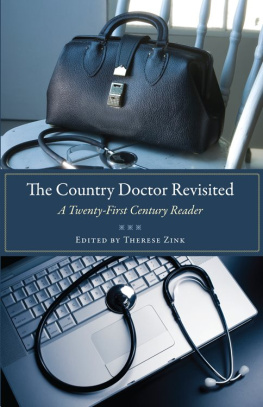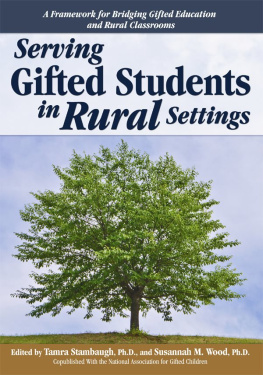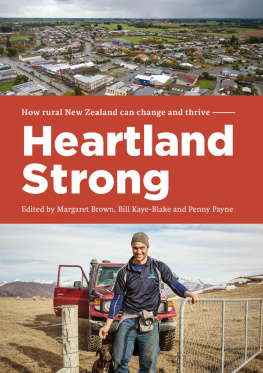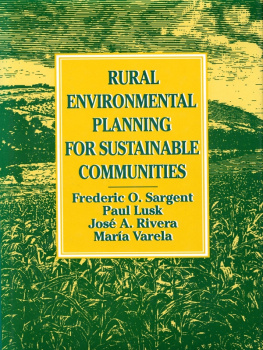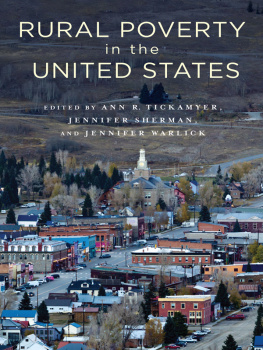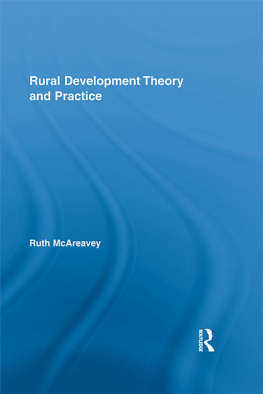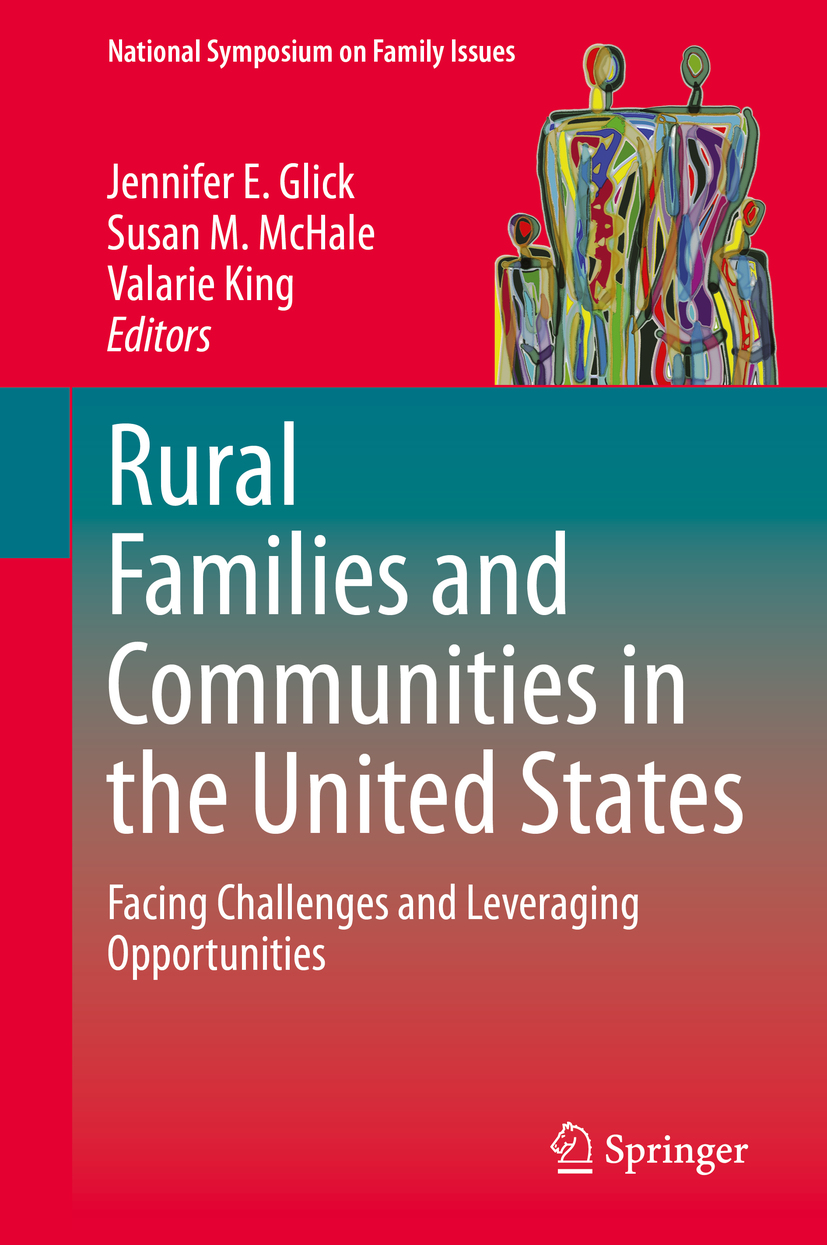Volume 10
National Symposium on Family Issues
Series Editors
Susan M. McHale , Valarie King and Jennifer E. Glick
More information about this series at http://www.springer.com/series/8381
Editors
Jennifer E. Glick , Susan M. McHale and Valarie King
Rural Families and Communities in the United States
Facing Challenges and Leveraging Opportunities
Editors
Jennifer E. Glick
Population Research Institute, Penn State, University Park, PA, USA
Susan M. McHale
Social Science Research Institute, Penn State, University Park, PA, USA
Valarie King
Department of Sociology, Penn State, University Park, PA, USA
ISSN 2192-9157 e-ISSN 2192-9165
National Symposium on Family Issues
ISBN 978-3-030-37688-8 e-ISBN 978-3-030-37689-5
https://doi.org/10.1007/978-3-030-37689-5
Springer Nature Switzerland AG 2020
This work is subject to copyright. All rights are reserved by the Publisher, whether the whole or part of the material is concerned, specifically the rights of translation, reprinting, reuse of illustrations, recitation, broadcasting, reproduction on microfilms or in any other physical way, and transmission or information storage and retrieval, electronic adaptation, computer software, or by similar or dissimilar methodology now known or hereafter developed.
The use of general descriptive names, registered names, trademarks, service marks, etc. in this publication does not imply, even in the absence of a specific statement, that such names are exempt from the relevant protective laws and regulations and therefore free for general use.
The publisher, the authors, and the editors are safe to assume that the advice and information in this book are believed to be true and accurate at the date of publication. Neither the publisher nor the authors or the editors give a warranty, expressed or implied, with respect to the material contained herein or for any errors or omissions that may have been made. The publisher remains neutral with regard to jurisdictional claims in published maps and institutional affiliations.
This Springer imprint is published by the registered company Springer Nature Switzerland AG
The registered company address is: Gewerbestrasse 11, 6330 Cham, Switzerland
Preface
The landscape of family life is ever changing. The strategies needed to maintain family economic stability, health, and general well-being vary across space and place. Although the rural-urban divide is often portrayed as the most important geographic distinction, there is tremendous diversity across rural communities. As the demographic composition of the U.S. changes, our rural communities also change. So, in contrast to some depictions, families in rural areas are from diverse racial, ethnic, linguistic, and cultural origins. Furthermore, the challenges facing rural areas are not uniformsome rural areas are resource constrained, losing services and social supports. Other areas host opportunities that support healthy families and child well-being.
The 2018 National Symposium on Family Issues brought together an interdisciplinary slate of researchers to address how economic and demographic shifts across rural communities, and the diversity within these communities, shape family relationships and development. The focus on the challenges ahead gives us a look into the future of work, parenting, and health across the rural landscape in the U.S. Research also reveals resiliency and strategies that may help rural families thrive as their communities change.
The volume begins with a focus on the broad trends in rural economies and how conditions of work impact individual well-being and family functioning. There is no doubt that the labor market realities facing families in rural areas are changing rapidly. But there is no one portrait of a rural place in the U.S., and economic and demographic shifts change opportunities and constraints. Research also implicates the policies of the past and the legacy of long-term rural poverty that make the challenges of responding to broader economic shifts even more challenging. Fewer job opportunities encouraged out-migration and accelerated rural aging. At the same time, the growth of some rural areas as new migrant destinations diversified the population of some communities. The chapters in Part I demonstrate the long run implications of demographic, policy, and political shifts in the U.S. from the mid-twentieth century and point to the possibilities for rural development in the future.
These historical shifts across diverse rural areas set the stage for the current economic and health challenges facing families today. Thus, Part II of this volume presents research on these current pressing issues and the emerging needs of rural communities. The authors demonstrate the threat to work and prosperity brought about by increasing automation of the workplace and the need for education and training opportunities as rural economies are transformed. And, in keeping with the focus on diversity across rural areas, the authors demonstrate how shifts in mortality and mobility are creating distinct age structures across the rural continuum. Finally, this theme of the complexity and diversity of rural communities in the U.S. sheds light on the variation in opioid use disorders and opioid mortality across rural areas. It is clear that this is a multidimensional problem that is not limited to one simplistic cause or solution.
In Part III, the volume turns to work that demonstrates the resilience of diverse families in rural spaces with a focus on family roles, relationships, and development pathways. These in-depth and longitudinal analyses assess risks and resilience for children and adolescents of Latino, African American, and Anglo-American origins in several different regions of the country. For some, family life in rural areas means fewer economic opportunities but greater social support as extended family buffers one another. For others, being present in rural America reflects recent migration and adaptation to new environments. Thus, there is variability in the way the rural context shapes, challenges, and supports family processes and youth development. The research presented here illustrates how families navigate these challenges and proposes new frameworks for studying diverse communities settled across the rural-urban continuum today.
The 2018 National Symposium on Family Issues was a unique opportunity to hear from scholars from varied disciplinary backgrounds who are investigating different challenges facing rural families in the U.S. today. We hope that their work highlighted in this volume will set the stage for new scholarship and policy recommendations that recognize that there is no one-size-fits-all prescription for the diversity of challenges facing rural communities.
Jennifer E. Glick
Susan M. McHale
Valarie King
University Park, PA, USA
Acknowledgments
The editors are grateful to the organizations at Penn State that sponsored the 2018 Family Symposium and this resulting volume, including the Social Science Research Institute (SSRI); Population Research Institute (PRI); the departments of Sociology and Criminology; Human Development and Family Studies; Agricultural Economics, Sociology, and Education; Psychology; and the Clinical and Translational Science Institute, Child Study Center and Prevention Research Center. The editors also gratefully acknowledge essential core financial support in the form of a five-year grant from the Eunice Kennedy Shriver National Institute of Child Health and Human Development (NICHD; R13-HD048150), as well as ongoing advice from Regina Bures at NICHD. The support of our partners enabled us to attract outstanding scholars from a range of backgrounds and disciplines from the community of researchers, practitioners, and policy-makers on whom the quality of the series depends.



